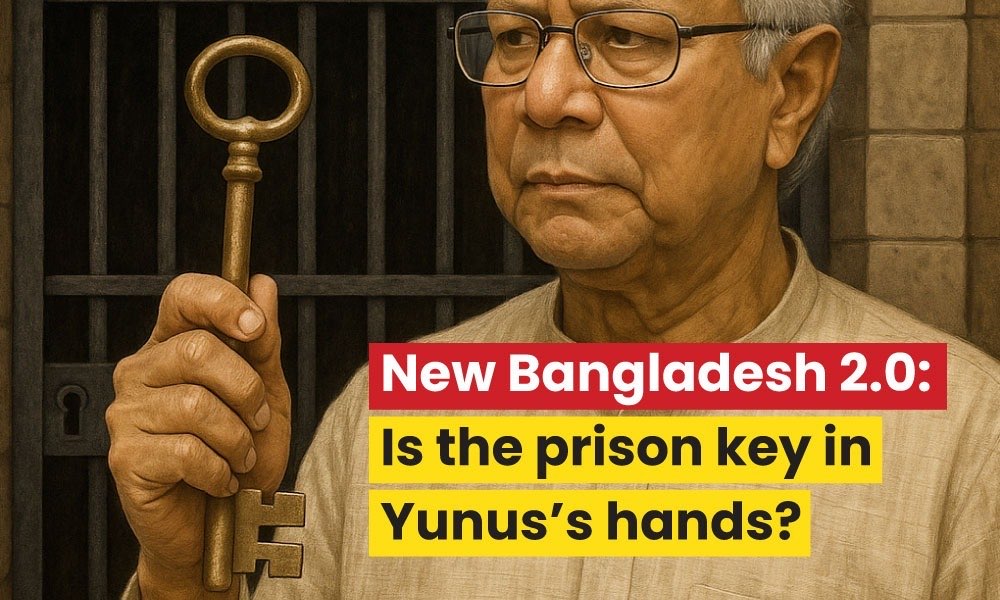7095
Published on May 30, 2019Japanese Prime Minister Shinzo Abe has assured Sheikh Hasina of continuing to support Bangladesh in its efforts to graduate to a developed nation.
The two premiers held a joint news conference after a bilateral meeting and signing of $2.5 billion official development assistance in Tokyo on Wednesday.
“Prime Minister Abe has assured me that Japan will stand by Bangladesh and extend necessary support to reach its goal to become a developed country by 2041 as it by now has met all the criteria to graduate from Least Developed Country to Developing Country,” Hasina said.
“We will work together for the development of Bangladesh and beyond and achieve a free and open Indo-Pacific region,” Abe told the media.
Hasina was given a guard of honour when she reached the Japanese Prime Minister's Office.
Japan occupies a very special place in the hearts of the people of Bangladesh as “the level of commitment that Japan has been showing since our independence in 1971, is truly remarkable”, she said.
Father of the Nation Bangabandhu Sheikh Mujibur Rahman had dreamt of making Bangladesh a prosperous nation and his vision of development was influenced by the development history of Japan, the prime minister said.
“After more than 48 years since our independence in 1971, we can now confidently say that we are moving in the right direction to fulfil that dream,” Bangabandhu’s daughter said.
Japan is the single largest development partner of Bangladesh with $11.3 billion in ODA since independence.
Bangladesh will spend the latest Japanese funds on key infrastructure projects such as the Matarbari Port Development project, Dhaka Mass Rapid Transit Development Project (Line 1), and Matarbari Ultra Super Critical Coal-Fired Power Project (V). The Foreign Direct Investment Development Project (II), Energy Efficiency and Conservation Promotion Financing Project (Phase-2) will also get funds from the ODA.
“And it’s reassuring to have Japan by our side always,” Hasina said, thanking Abe for the signing of the new ODA deal.
The two prime ministers discussed new ideas to enhance and strengthen the level of cooperation, according to Hasina.
“We’ve agreed to explore all possible areas where our two countries can find mutually beneficial outcomes,” she said.
They discussed ways to enhance regional connectivity by improving physical infrastructure, for which Abe also assured her of continued assistance, the prime minister said.
Regional peace and stability, the fight against terrorism and militancy, tackling the effects of climate change, and denuclearisation at the global and regional levels were among the other issues discussed at the meeting.
Hasina said they agreed on finding a durable and early solution to the humanitarian and political crisis arising from the deportation of over a million Rohingya people from Myanmar to Bangladesh.
“Japan understands that the solution to this crisis lies in the early, safe and dignified return of this displaced people to their homeland Myanmar and it is necessary for Myanmar to create conducive atmosphere in Rakhine State of Myanmar for the return of the displaced people,” she said.
Finance Minister AHM Mustafa Kamal, PM’s Adviser for Private Industry and Investment Salman F Rahman, State Minister for Power, Energy and Mineral Resources Nasrul Hamid Bipu, State Minister for Expatriates’ Welfare and Overseas Employment Imran Ahmed, State Minister for Foreign Affairs Md Shahriar Alam, Principal Secretary Nojibur Rahman, Chief Coordinator of SDG Affairs Abul Kalam Azad and Foreign Secretary Shahidul Haque accompanied Hasina at the bilateral meeting.
She emphasised developing Bangladesh-Japan ties to a strategic relationship, Shahidul told the media later.
Abe responded positively when she called for Japan’s help to extract gas from offshore fields and urged it to hire skilled workforce from Bangladesh, the secretary said.
Hasina also invited the Japanese premier to join the golden jubilee celebrations of Bangladesh’s independence in 2020. Abe said he would consider the invitation positively, Shahidul said.
Bangladesh agreed to support Japan in the UN Security Council elections in 2022, according to the foreign secretary.
Later in the evening, Hasina attended a dinner hosted by Abe in her honour.
“On behalf of my delegation and on my own behalf, I express my sincere gratitude to you, Prime Minister, for the warm welcome and generous hospitality accorded to us,” she said at the dinner.
Hasina travelled to Tokyo from Dhaka on Tuesday to attend the the Japanese media company Nikkei Inc’s The Future of Asia conference.
Political, economic and academic leaders from the Asia-Pacific region will share their opinions on regional issues and the role of Asia in the world during the conference on May 30-31.
Hasina in her keynote speech will emphasise the future of the ‘emerging Asia’ and its potential, the Rohingya crisis, and technological advancements, besides highlighting the development process of Bangladesh.














